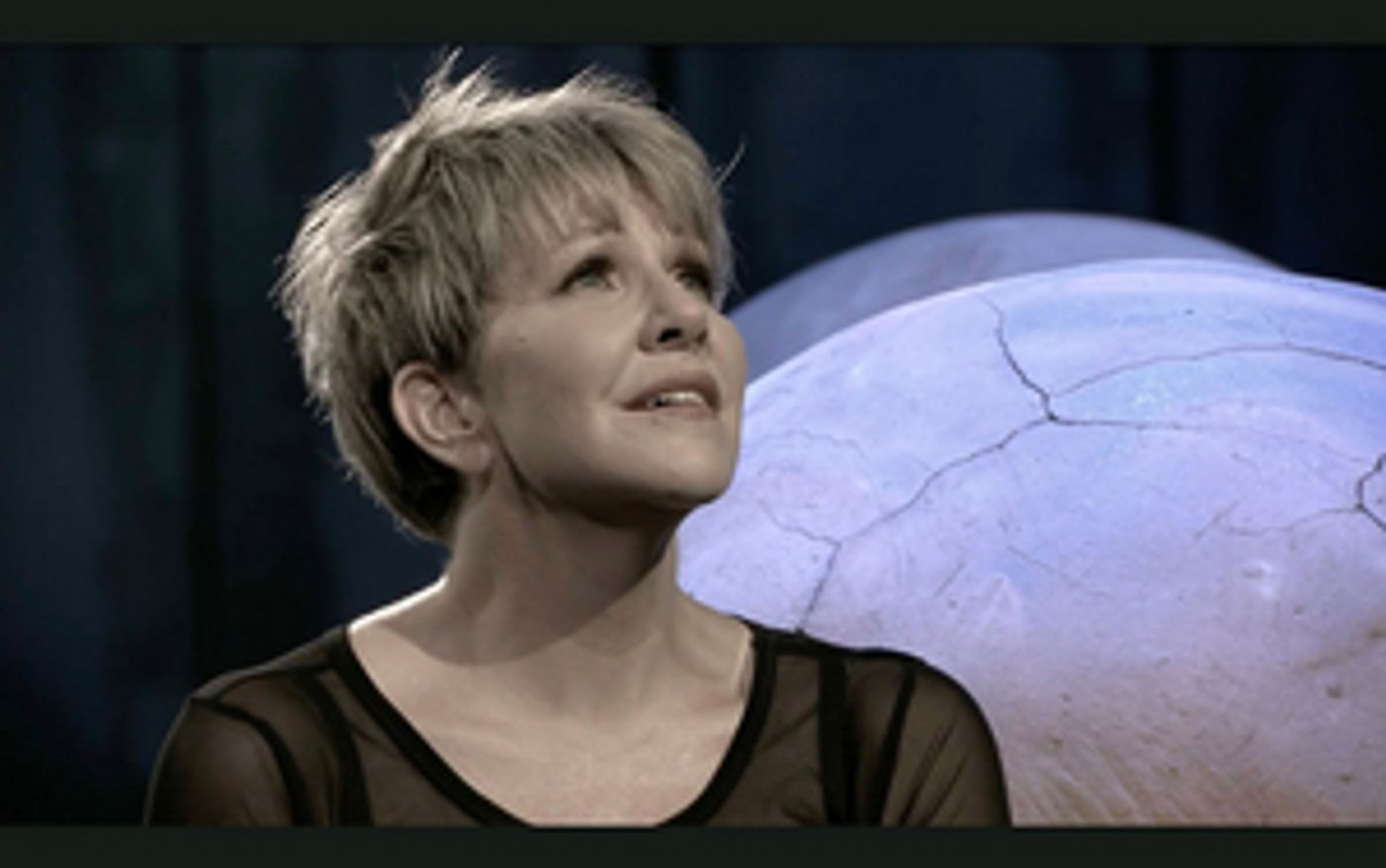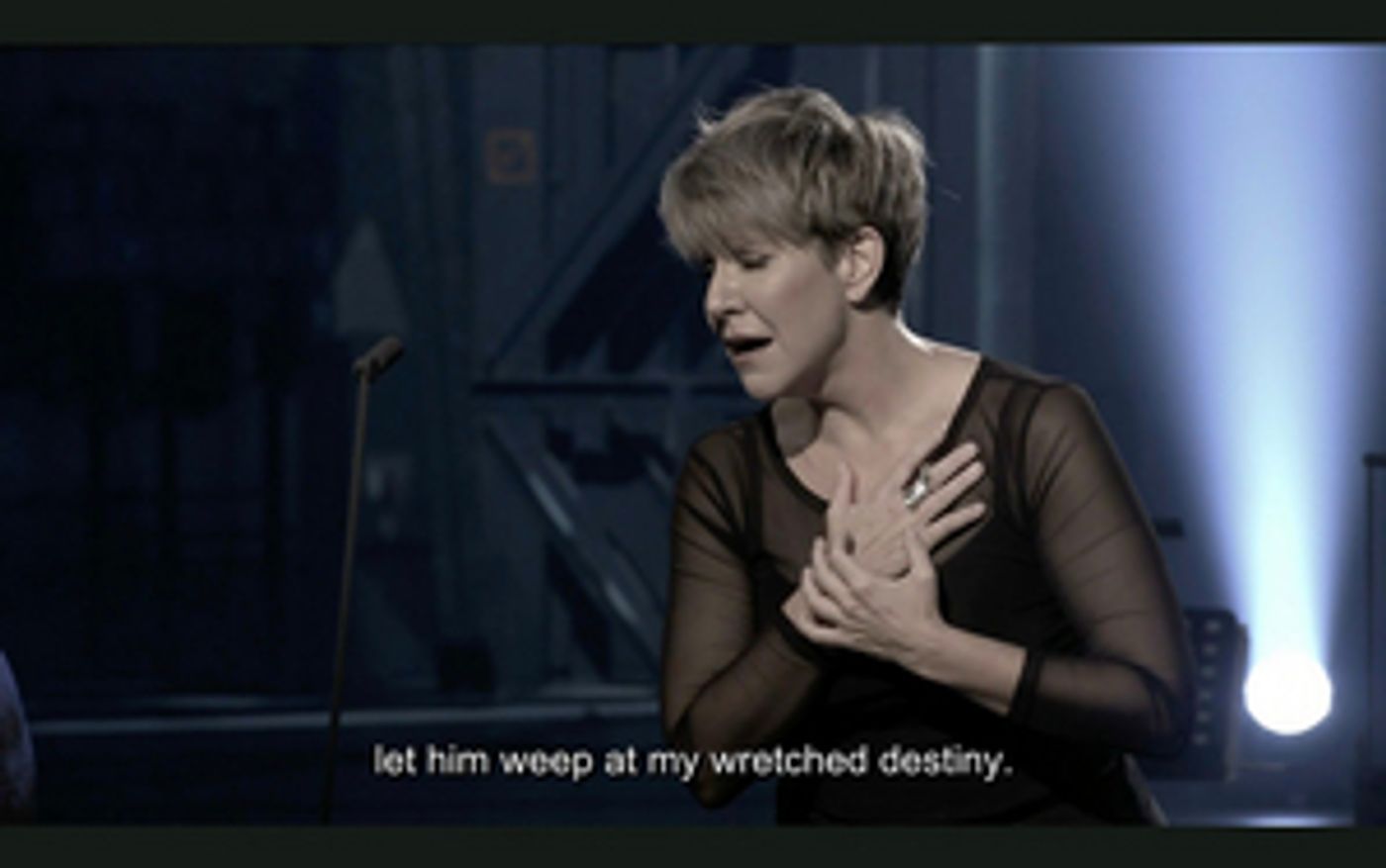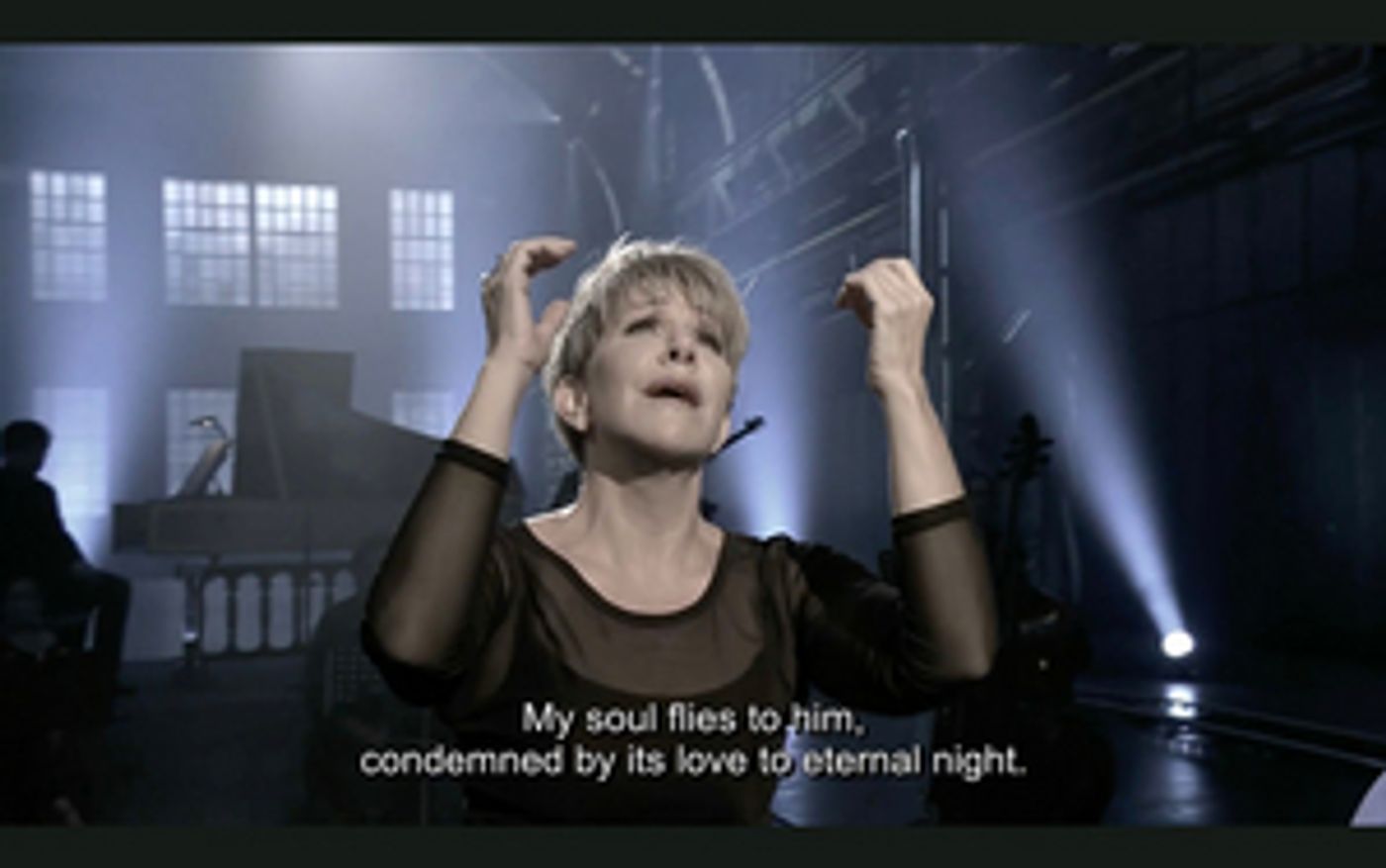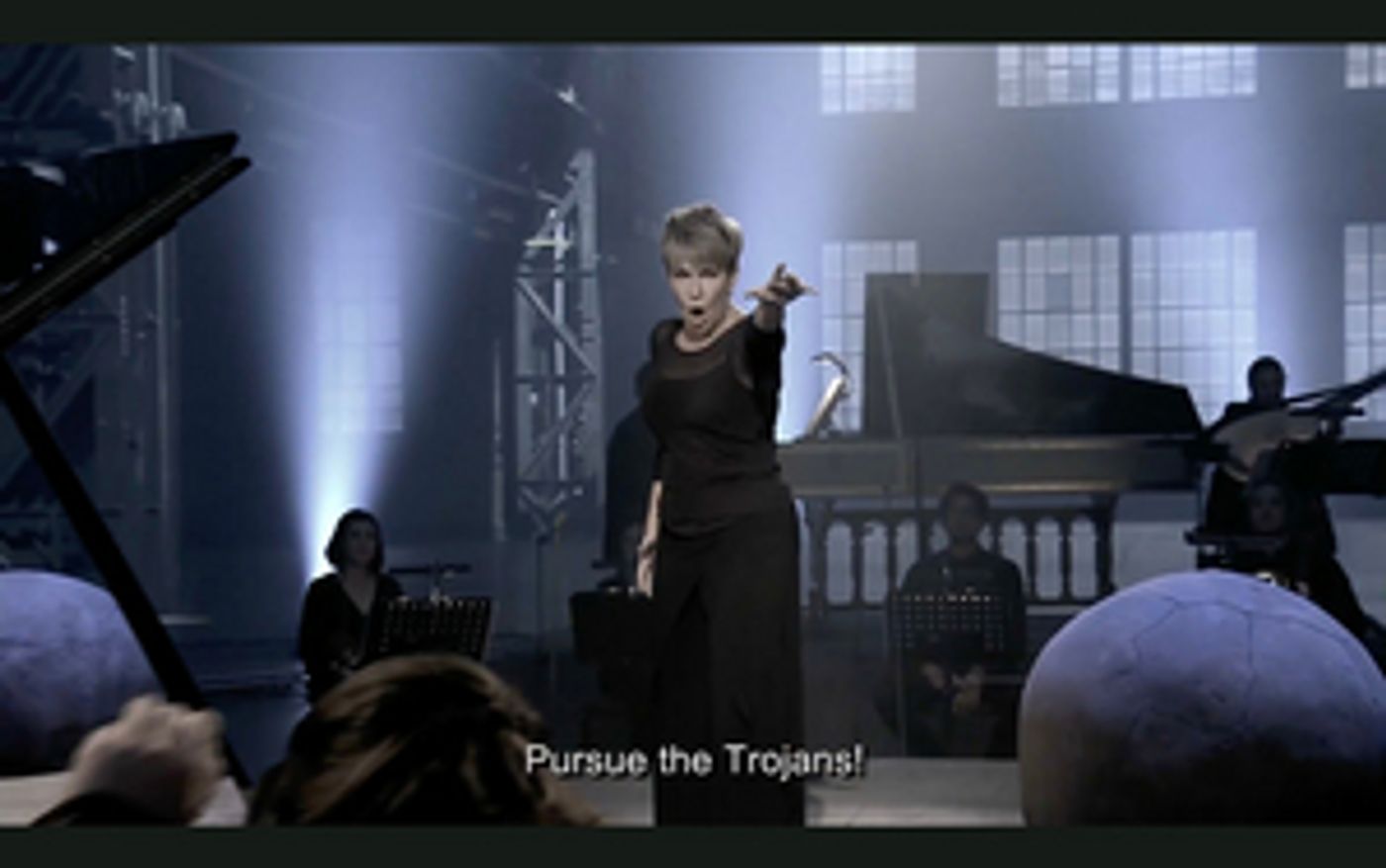Review: Like Fine Wine, DiDonato Keeps Getting Better, as her Unusual 'Met Stars Live in Concert' from Germany Shows Aplenty
Mezzo Joyce DiDonato Sets a New Standard for Live Concert Series from the Met, Now Extended Through October 23

from live broadcast.
Mezzo Joyce DiDonato (JDD) set a new standard for the Met's Live concert series (hosted by Christine Goerke) with a gorgeous recital from the Jahrhunderthalle that was broadcast live on September 12 and will be available on demand through the Met's website until October 23.
And not only because of the nature of the hall: a 1902 Industrial Pavilion in Bochum, Germany, in which she was surrounded by the fine pianist Carrie-Ann Matheson and the marvelous Ill Pomo d'Oro chamber ensemble (which backed her wonderful AGRIPPINA in-concert tour last year and the recording that followed on Erato), along with the striking sculptures of Mexican sculptor Bosco Codi.
No one could have guessed this wasn't her first choice of a venue because it fit her and the proceedings like they were made for one another. In fact, two previous sites became COVID hotspots (Barcelona and Antwerp) and had to be abandoned.

But it was the way she grouped the various pieces together, without bringing the proceedings to a standstill, as the more traditional recitals by Kaufmann, Fleming and Davidsen had, except for some interstitial gear shifting among the parts of the program. And she sounded marvelous: like a fine French sauterne, luxurious and full-bodied, sweet when called for and harsher when it fit the bill. Her coloratura was in fine form and her breath control was peerless.
She started off as "the angry Joyce," accepting fate, abandoning hope and admitting to being doomed, in Monteverdi's "Addio Roma," then going without a break into Didon's final scene from LES TROYENS, one of her great roles. Here, in a kind of prayer, she says farewell to the skies of Africa, resigned that her reign has ended. Then she moved, again seamlessly, to Mahler's "Ich bin der Welt abhanden gekommen" ("I am lost to the world"), gorgeously singing of her loss of the world's tumult and resting in a quiet place, living alone in "my heaven."
Before moving on to the second part of her live program, the concert took a dignified detour to a heart-rending clip from the Met's production of Donizetti's MARIA STUARDA, complete with the Met's stellar orchestra and chorus: the Act II prayer before Maria's execution, with JDD singing a humble prayer to God, asking him to "strengthen me with your love."
Part II is dedicated to "the restorative power of nature," beginning with the "American diva's" (as she's often called) a capella version of the 19th century folk song, "Oh Shenandoah," her voice sounding crystalline as she wistfully recalls her days in the Shenandoah Valley. She moved flawlessly into Handel's "As with rosy steps the morn" from THEODORA, singing, peacefully and thoughtfully, of the "hopes of endless light," sipping from a glass of that sauterne I mentioned earlier. This begot Monteverdi's "Illustratevi, o cieli" from ULISSE, with her enthralling trills as she sings of birds and murmuring rivers, with her mood lightening, and one of her calling cards, Handel's "Dopo note atra e funesta" from ARIODANTE, filled with runs and ornamentation and particularly fine work from theorbist Miguel Rincon Rodriguez.

finishing up the concert with an unusual combination of pieces, including a world premiere by Kenyatta Hughes to a Langston Hughes text, JDD interviewed both Kenyatta--who previously had been incarcerated--and Sister Helen Prejean, an advocate against the death penalty, who wrote "Dead Man Walking," the source of both a movie and the Jake Heggie-Terrence McNally opera that JDD has notably performed.
Only weeks before the concert, JDD asked K. Hughes to write a song for her, based on the L. Hughes' poem, "I dream a world." The jazz-inflected score fit the text wonderfully, with the work of Pomo d'Oro cellist Ludovico Minasi delightfully complementing JDD's intensity. It was back to the baroque for the exquisite "Intorno all'idol mio" by Antonio Cesti, before JDD moved to a mature sounding version of Cherubino's "Voi che sapete"--her Met debut role--by Mozart, which she paired with Louiguy's "La vie en rose".

True, she was no "little sparrow" (aka Edith Piaf) in Louiguy's well-known song, but she brought her own sensibility to it. She did the same to Ginastera's "Cancion al arbol del olvido." That's the trademark of JDD: Taking music, familiar or not, and making it her own. It may not have been the last piece on the program--that was given to an appropriate (though not necessarily enthralling) "You'll never walk alone" from Rodgers & Hammerstein's CAROUSEL--but it was unforgettable nonetheless.
This exciting concert is available through October 23 through the Met's website at a modest cost, well worth the money.
Reader Reviews
Videos

